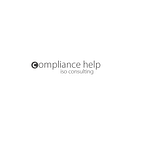Three Major Myths About Quality Assurance Consultants
Summary
The article will debunk some of the major myths associated with quality assurance consultants.
Appointing quality assurance consultants is essential to ensure ISO compliance. Small and medium companies need their assistance and support to conduct several evaluations before certification. These consultants aim to ensure that their clients adhere to the regulatory terms and conditions. They design strategic solutions to help reduce risks and improve your current system. Unfortunately, many companies are reluctance to contact them. There are myths oriented to their service that are mostly false. Getting their services is a wise option to achieve quality assurance standards like the ISO 9001 or the ISO 13485. These certificates carry immense significance in improving the overall business performance.
One must contact these professionals to understand the clauses and achieve 100% compliance. Therefore, these common myths must be debunked. They not only create confusion but also reduce a company’s potential to get accredited. The following article will discuss five such myths.
First, what do the quality assurance consultants do?
● They help to improve the present quality management system.
● They help to understand the complex terminologies and conditions associated with the particular ISO standard.
● They devise plans to achieve statutory compliance.
● They conduct a gap analysis to find out the difference between the present quality management framework and the objectives.
● They perform internal audits to ensure an effective improvement and zero nonconformance.
● They help with organising training for awareness campaigns.
● They help the management with documenting each management and implementation phase.
● They help choose a reliable certification house.
● After the certification, the consultants perform a surveillance audit yearly to ensure the system performs as per the expectations.
Three Major Myths About Quality Assurance Consultants
1. The consultants do not help with certification
● This is an entirely false claim.
● The consultants are known for helping their management with ISO certifications.
● Therefore, their only duty is to check the system, find out the flaws, and help the management mitigate them for compliance.
● They provide bespoke solutions so that companies can get accredited without going through any exhaustion.
2. They charge high fees for no reason
● An experienced quality assurance consultant is likely to charge around $300 to $500 per assessment.
● It is justified as they have experience and certificates.
● It is better to invest in someone who has relevant industry expertise.
● Their practice and clientele are two reasons to pay them high as they ensure a smooth certification.
● However, these days, they offer customised solutions. Therefore, a company might not have to pay a large sum. They can only hire the consultants for a specific assessment.
3. They do not help with any modification, only consult
● This is entirely wrong as the main responsibility of these consultants is to improve the management system.
● They conduct different evaluations like gap assessments, internal audits, and readiness reviews.
● They conduct a gap analysis to find the root-cause while the internal audit helps them to identify further nonconformance.
● Through readiness review, they ensure that the system is ready to get scrutinised by third-party for certification.
To hire quality assurance consultants, one must rely on testimonials and references. Many more myths prevent companies from hiring them. One must invest time in research before deciding whether to hire them or not.
Author Bio
The author is a retired ISO certification consultant. He spends his time researching, writing blogs and other articles on various subject matters relevant to business management systems.
